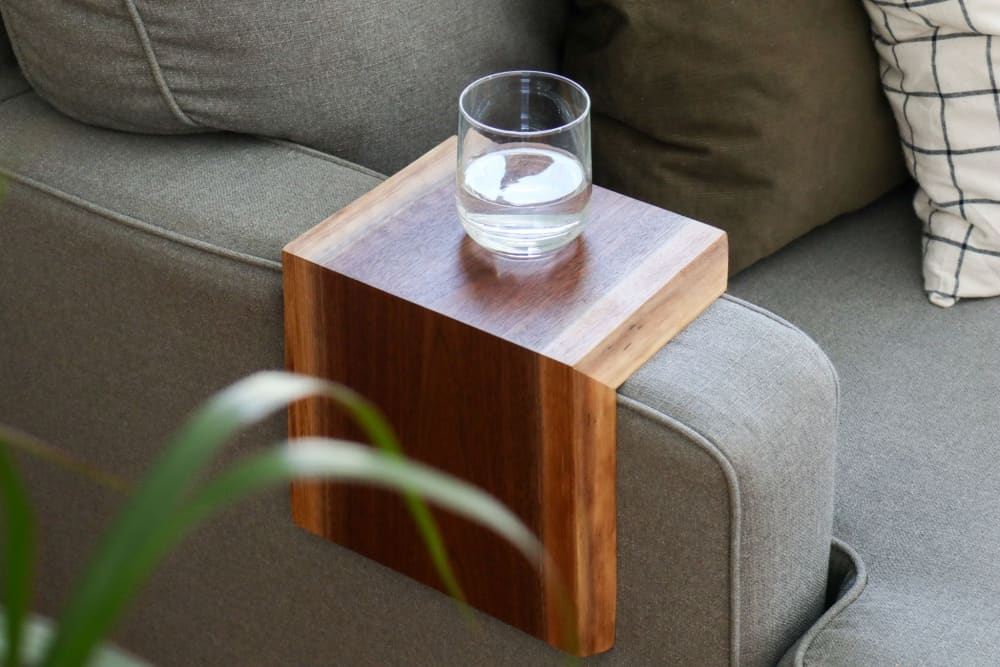Written by Danielle Amir-Lobel, Editorial Manager of Wescover
A live edge table embraces the unique, organic shape of the wood. Typically, when logs are cut into slabs, the natural edges of the wood underneath the bark are removed to form straight edges. Alternatively, a live edge slab is a wood slab in which the edge of curvature is not sawn, in order to preserve the natural, raw look of the wood. Live edge wood can be used in many different ways to bring a rustic, one-of-a-kind look to furniture. For example, two live edge slabs can be combined and their gap filled with resin or epoxy to make a beautiful, unique river table. Although live edge tables possess a very natural appearance, they are very carefully preserved, often with a natural finish, so they are durable, safe, and built to last.
One of our amazing live edge table Creators, Hazel Oak Farms, based in Amana, Iowa, has answered a few questions for us to help us better understand the process of creating a live edge table and help you know what to look for when purchasing one. Hazel Oak Farms designs unique, custom furniture which cannot be purchased from big-box stores. They incorporate their values of simplicity and purpose into all of their pieces so that we can slow down from our desire to constantly appease the latest trends and instead form deeper connections with our furniture and art. The Creators salvage American hardwood trees and hand-make them into one-of-a-kind art that is designed to bring you joy for a lifetime.

Ethan and Melissa, husband and wife team, are the primary members of Hazel Oak Farms.
What does “live edge” mean?
“Live edge” is the term we use to describe boards in which the natural edge of the tree is maintained. Typically, people tend to remove this part for normal lumber, but live edge boards leave it on to harness the beautiful, natural contours on the wood. It is the outermost part of the tree that makes up the “live edge.”

Live-edge Walnut Waterfall C-table
How do you source different kinds of wood for live edge tables?
We actually mill and dry a lot of our own live edge slabs. However, whatever lumber we do not make ourselves, we purchase locally. Most of these live edge slabs we use come from recycled logs or logs that have been harvested from local forests. We purchase our wood from about six different local sawmills. The easiest wood to obtain is dimensional lumber, which has square edges, but live edge slabs are much harder to find.





